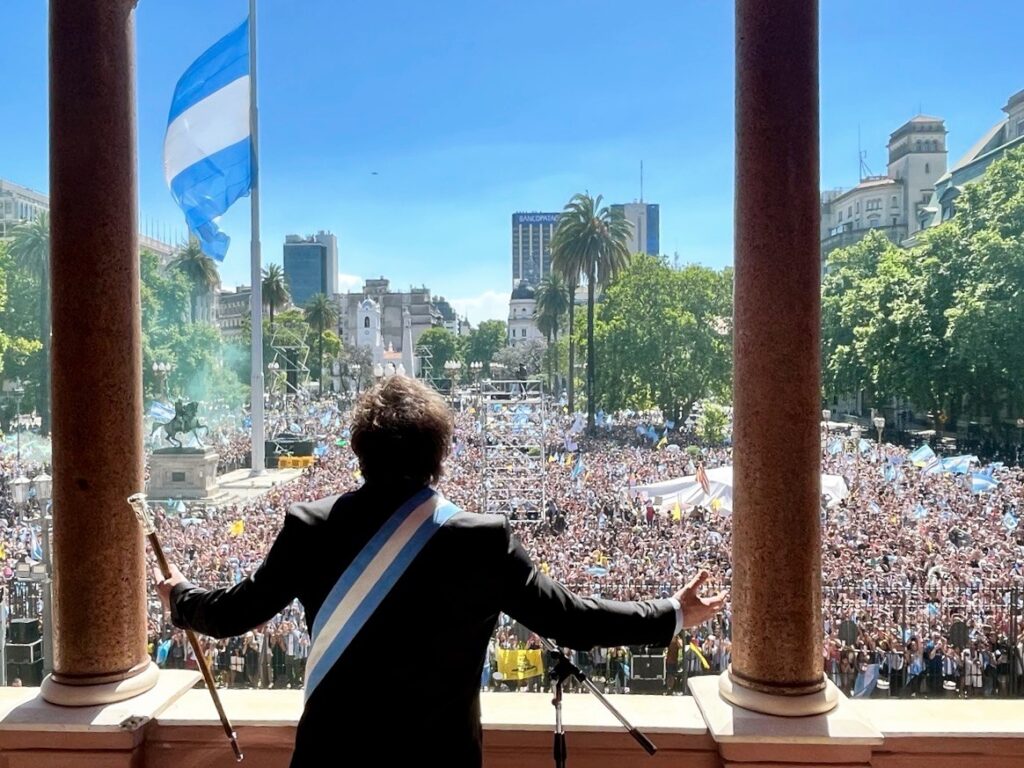
The President of the Argentine Republic Javier Milei speaks for the first time to all Argentines from the balcony of the Casa Rosada. December 10, 2023. Photo courtesy of the Office of the President of Argentina.
At the Cato Institute, Ian Vasquez explains the governing philosophy espoused by Argentina’s new president, Javier Milei, and his new social contract of limited political power over the people. Vasquez writes:
On Sunday Javier Milei assumed the presidency of Argentina promising a radical change to the economic and social model that has ruined his country. His challenge is enormous, but the new president has made a politically astute start.
Unlike what Argentines have become accustomed to from their political leaders, in his inauguration speech Milei treated them as adults. He presented a clear vision. The collectivism into which Argentina long ago headed, he declared, has failed. “For more than 100 years, politicians have insisted on defending a model that only generates poverty, stagnation and misery,” he explained.
He said that it is necessary to return to what made Argentina one of the richest countries in the world more than a century ago: classical liberalism. He again repeated what he meant by using liberal thinker Alberto Benegas Lynch, Jr.’s definition: “Liberalism is the unrestricted respect for the life project of others based on the principle of non‐aggression and the defense of the right to life, liberty, and private property.” And he made clear that that is “the essence of the new social contract chosen by the Argentines.”
“This new social contract,” added Milei, “proposes a different country, a country in which the state does not direct our lives, but rather safeguards our rights.” In practice, he proposed nothing less than undoing the corporatist legacy of Peronism that has led the country from crisis to crisis and replacing it with institutions and policies that limit political power.
Read more here.
If you’re willing to fight for Main Street America, click here to sign up for my free weekly email.





